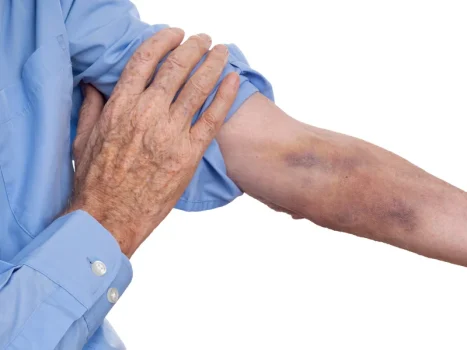Alcohol Use Disorder and Dementia: A Review Alcohol Research: Current Reviews

Older people are also more vulnerable to injuries from falls due to changes in eyesight, spatial recognition, and bone health. Alcohol use can increase their risks for falls, as it can affect judgement and https://ecosoberhouse.com/ perception. Thiamine deficiency can cause dementia, which is progressive and permanent memory loss. The Recovery Village offers high-quality inpatient and outpatient treatment options across the country.

Wernicke-Korsakoff Syndrome Life Expectancy

In another meta-analysis, cataracts and diabetic retinopathy had significant associations with dementia risk. While limited research has investigated the impact of alcohol on worsening Alzheimer’s disease, epidemiological studies have suggested that alcohol use disorder may increase the overall risk of developing dementia. Rebecca Edelmayer, the vice president of scientific engagement for the Alzheimer’s Association, told CBS News the findings are an “important piece of the puzzle” in understanding the types of risk factors that may impact brain health and cognitive decline. Usually, the effects of long-term memory loss are related to drinking 21 or more drinks a week for 4 years or more, according to Massachusetts General Hospital. Alcohol-related dementia ultimately describes any dementia-type illness that is caused by alcohol use.

Alcoholic Dementia Symptoms
They may regain much of their memory and thinking skills, and their ability to do things independently. It is caused by a person regularly drinking too much alcohol, or binge-drinking, over several years. Long-term, excessive alcohol use can cause permanent damage to the brain, which can lead to Alzheimer’s and other types of dementia.
How Does Alcohol Affect Your Brain?
- Some people with ARBD will only have small changes to their thinking and memory, known as mild cognitive impairment (MCI).
- Several high-profile reviews looked at the research into alcohol and dementia risk.
- An individual may also need assistive technology and other modifications to help them with everyday tasks.
- It can cause brain atrophy and shrink your brain over time,” shares Dr. Anand.
- If you or a loved one frequently engage in binge drinking or have an addiction to alcohol, talk to your healthcare provider or call the SAMHSA National Helpline.
Previously, it was believed that neurons were solely responsible for the responses related to Alzheimer’s. Only recently, these other cell types have been identified to have a role in the development of the disease. These changes were not limited to neurons alone — supporting cells such as astrocytes, microglia, and endothelial cells can alcoholism cause dementia also displayed altered gene expression patterns in response to alcohol exposure. Previously, she wrote for USA Today, where she was selected to help launch the newspaper’s wellness vertical. In a study last year, researchers estimated nearly 188,000 dementia cases in the U.S. each year may have been caused by air pollution.

- A key limitation, as in other observational studies, is the measurement of alcohol consumption using self reports.
- Previously, she wrote for USA Today, where she was selected to help launch the newspaper’s wellness vertical.
- This means there are fewer cells to carry the messages that the brain needs to do different tasks.
- A standard drink contains 14 grams, or 0.6 ounces (oz), of pure alcohol in the United States.
- Because he is a member of a support group that stresses the importance of anonymity at the public level, he does not use his photograph or his real name on this website.
Since we excluded gender- and beverage-specific studies, no conclusions can be drawn concerning different effects for men or women or effects of specific ingredients of alcoholic beverages other than alcohol. An even greater amount of evidence concerning the link between dementia and alcohol consumption might be gathered by using further databases and including publications in languages other than English for a more thorough systematic review. Perhaps counterintuitively, some studies have concluded that light drinking may have a protective effect against dementia. Conversely, moderate alcohol use appears to have a detrimental impact on brain structure and may therefore increase dementia risk. A recent study scrutinized the relationship between alcohol and dementia.
Alcohol Use Disorder and Dementia: A Review
Overall alcohol abuse—classified as when alcohol consumption negatively impacts work or social life or leads to legal ramifications—is present in 1.7 percent of older adults in the United States. Previous research has identified lifelong alcohol abuse as a risk factor for dementia. However, it has been unknown whether older adults who begin abusing acohol late in life have an underlying neurodegenerative disease. Alcoholic dementia, or alcohol-related dementia, is a severe form of alcohol-related brain damage caused by many years of heavy drinking.
- Therapy for alcoholic dementia can include management of AUD, nutritional supplementation to compensate for nutrient deficiencies, and exercises to help improve cognition (thinking abilities) and motor skills.
- Drinking a large amount of alcohol in a short space of time (such as a single evening) is known as ‘binge-drinking’.
- It can lead to dementia-like symptoms, including memory loss, erratic mood, and poor judgment.
- They can arise with aging and other conditions that cause proteins in the lens to break down and clump together.
At the current time there are no acceptable criteria to definitively define alcohol-related dementia. If you regularly drink alcohol, try to do so in moderation and within recommended limits. A person should consult a doctor if they are experiencing any of these symptoms to receive a prompt diagnosis. Available epidemiological studies are not sufficient to verify a protective effect of alcohol on dementia development. Lifestyle changes, such as eating a balanced diet and stopping the use of alcohol, generally help.
Doctors may confirm a diagnosis of alcoholic-related dementia with a brain MRI. Nevertheless, seek a doctor’s advice on reducing your alcohol intake to prevent withdrawal symptoms. Psychosocial support from close family members and friends can also be helpful. For people with advanced alcohol-related dementia, treatment may not reverse symptoms.





